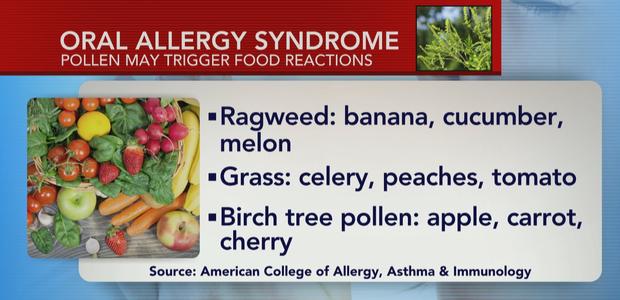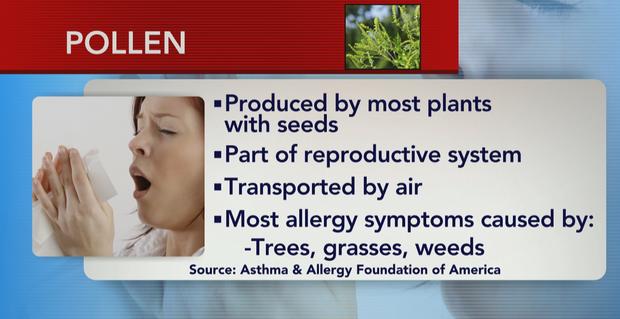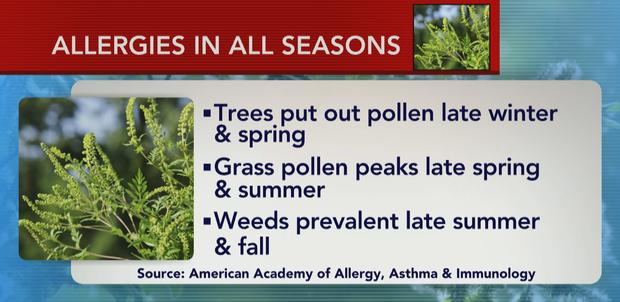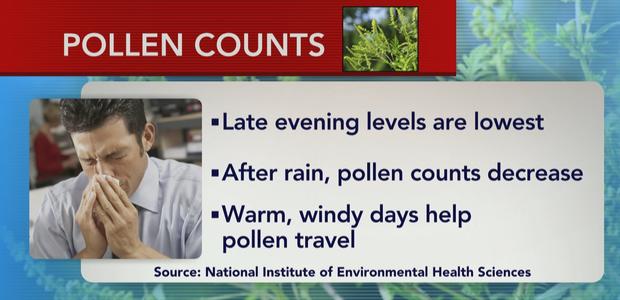What you should know about pollen and seasonal allergies
Seasonal allergies, also known as hay fever, affect more than 25 million Americans each year. Here are some facts about allergies and pollen that might help you find some relief.
1. If you're allergic to certain kinds of pollen, there are some food you might want to avoid.
"A lot of fruits and vegetables have proteins that are similar to the aspect of pollen that causes allergies. So you can get a cross reaction, and it's called oral allergy syndrome," CBS News medical contributor Dr. Holly Phillips explained Wednesday on "CBS This Morning."
Here are some food products that could trigger oral allergy syndrome, which could cause itchiness, numbness or tingling in your mouth:
Ragweed pollen allergy: Avoid bananas, cucumbers, melons, sunflower seeds, zucchinis
Grass pollen allergy: Avoid celery, melons, oranges, peaches, tomatoes
Birch tree pollen allergy: Avoid apples, almonds, carrots, celery, cherries, hazelnuts, kiwis, peaches, pears, plums
2. Pollen isn't just produced by flowering plants.
"Any plant that has seeds, by definition, also produces pollen," Phillips said. "One of the most interesting things is, the plants that are most plain looking -- weeds, grasses -- tend to cause more allergy symptoms than the big, beautiful flowers. That's because the grasses and weeds have light, dry pollen that goes in the air. We breathe it in, we get symptoms. Whereas big flowers, daffodils and roses that have heavy, sticky pollen, that only gets transmitted by insects, bees and butterflies. It's not so much in the air."
3. Pollen allergies can be prevalent through all the seasons.
"In the spring we see trees, summer -- grasses, fall -- weeds and over the winter, even trees like cedar trees can put out pollen from December through February," Dr. Phillips said.
4. Pollen counts are lowest in the evening.
"Generally late evening you see some of the lowest numbers," Dr. Phillips said. So if you suffer from allergies, you may want to plan your outdoor exercise or other activities accordingly.



